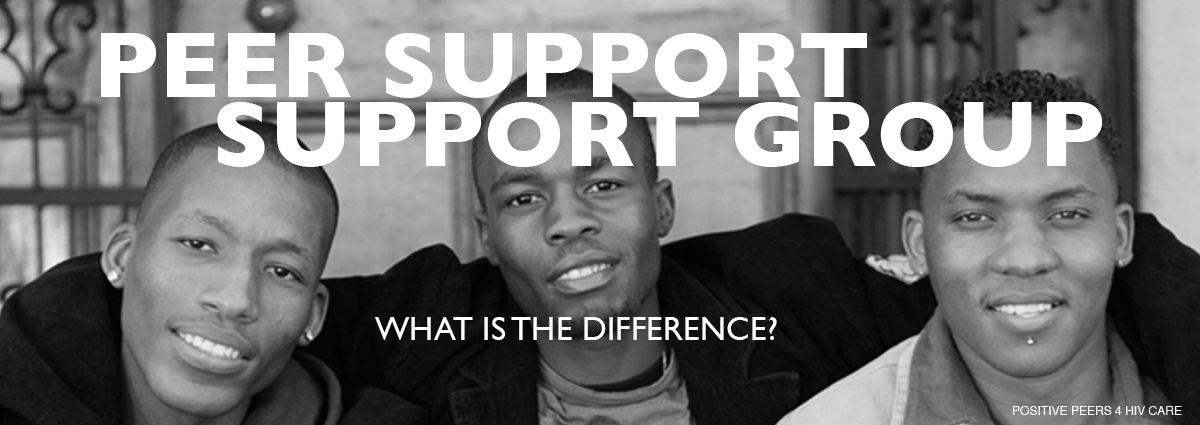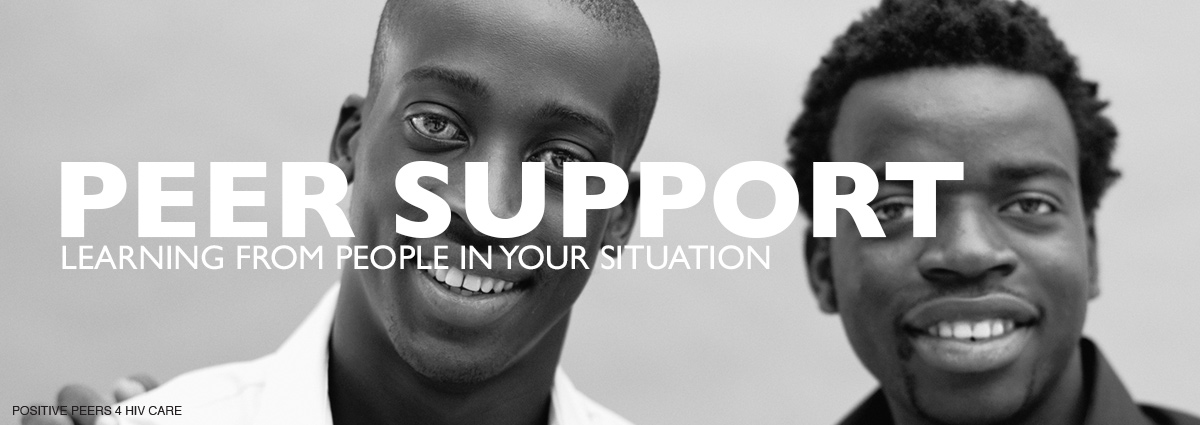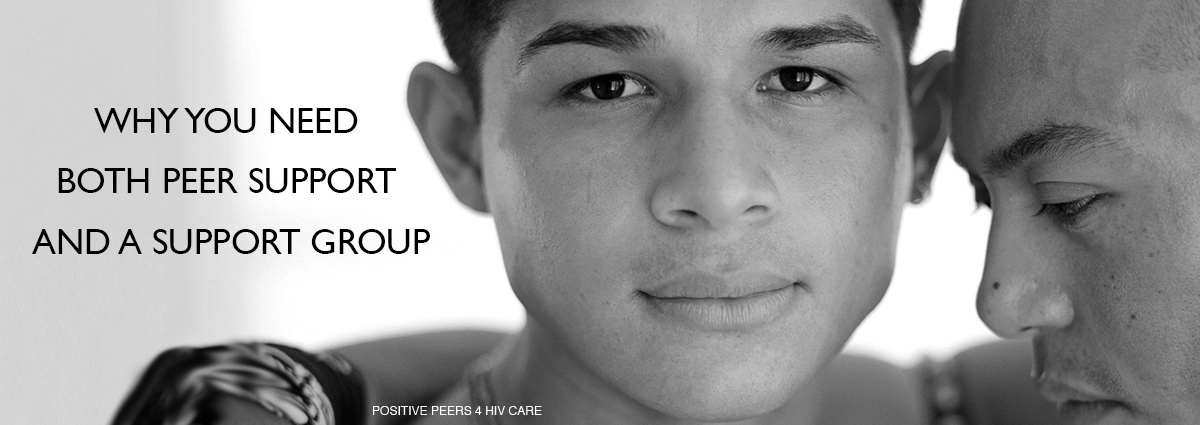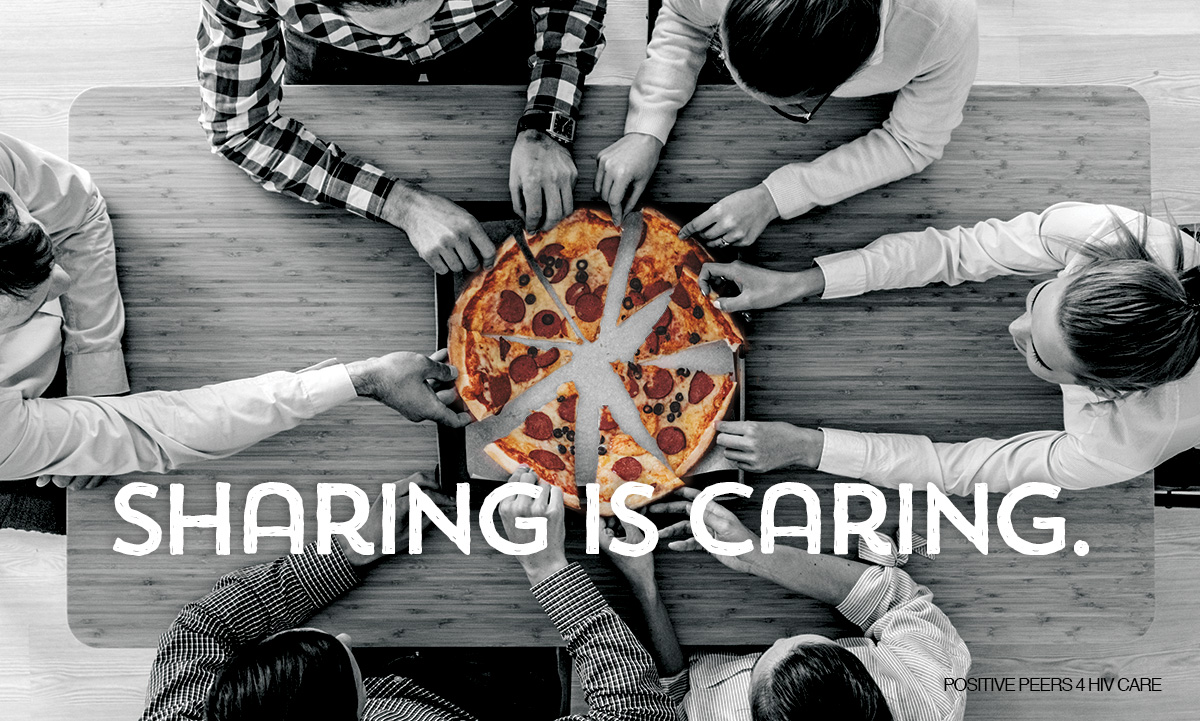
By: Jennifer McMillen Smith, LISW-S, HIV Social Worker at MetroHealth Medical Center and medically reviewed by Ann K. Avery, MD, Infectious Disease Physician at MetroHealth Medical Center
Peer support means somebody like you — a peer — is helping you out.
A support group is a bunch of peers who get together at a certain time to help each other.
That’s the main difference of peer support vs. a support group. One’s about the individual, the other is about the group.
We need peer support and support groups for two main reasons:
- Doctors, nurses, and social workers can’t be everywhere all the time.
- We’re more likely to trust people who’ve walked in our shoes.
Think about it: You may not identify completely with your doctor. You might think, “what do they know about MY situation?”
It’s another thing for somebody who actually has your medical problems — they know what your pain feels like, both emotional and physical.
So, let’s dig a little deeper into the differences between peer support and support groups.

Peer support: Learning from people in your situation
Scientists noticed a long time ago that people tend to trust other people who have gone through similar problems.
If you’ve been diagnosed HIV positive, your doctor can give you all types of information about the disease, how to treat it, and what to look out for. However, doctors don’t always provide emotional support, which can be just as important as knowing the science of HIV. After all, there’s so much you don’t know at first:
- How do you get your meds?
- How do you deal with side effects?
- How do you get healthy and get on with your life?
- Who do you turn to if doctors, nurses and social workers aren’t available?
- What do you say to your mom, your dad or your grandparents?
Folks in the medical profession can’t always answer those questions in a way that clicks with you. They talk their language, you talk yours.
Sometimes you need a translator who has already dealt with all the issues you’re going through now. That person is your peer supporter.
How a peer support group is different
Lots of local clinics create support groups for people living with HIV. This has pluses and minuses.
- On the plus side, everybody in the support group has HIV just like you do — it’s almost like a human library of knowledge about living with the virus. You can learn a lot in a short amount of time because you so have many people with different experiences and perspectives.
- On the minus side, the group might meet for a couple hours a month but isn’t available the rest of the time. You can always reach out to group members in person between meetings, but you lose the opportunity to talk to several people in the same sitting.
Come join our private, stigma-free, supportive community.
Health management tools with medication & appointment reminders.
Social networking in a community conversation & private chats.
Why you need both peer support and a support group
One-on-one peer support can be incredibly helpful — but what if your peer gives you bad advice? Sometimes the combined knowledge of a group can set you straight. Support groups are usually facilitated by a licensed professional with expert knowledge who can make sure correct information is being given as well.
Peer support and support groups need to work together to plug gaps in your health care and help you deal with everything that HIV throws your way.
It’s important to remember that peer support needs to be backed by solid science. No matter how helpful your peers are, their kindness, generosity and life experience can’t treat your HIV, only medical professionals can do that. The best approach is to connect with both peers and pros.
At some point you’ll be the one with all the experience and you’ll meet somebody who desperately needs to know what you’ve learned.
Sharing your knowledge is the essence of becoming a Positive Peer.
Related Blogs:




